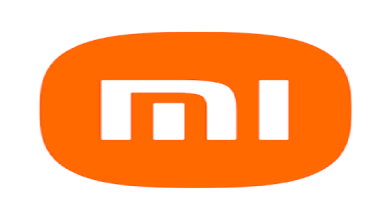
Digital inclusion refers to the policies, programs, and activities that are being done to ensure that all
individuals and communities have access to and can effectively use technologies. It aims to bridge
the digital divide by providing equal opportunities for everyone—particularly those on the margins of
society who are at risk of being left behind—to participate in the digital world. The idea is that
regardless of factors like socioeconomic status, location, age, or ability, every person is capable of
maximizing the benefits of digital tools, technologies, and platforms.
Equitable access to the internet stands as a critical social imperative in an increasingly connected world.
It’s an ideal towards which the Philippines is making consistent progress. For instance, the country saw
the second-highest number of digital infrastructure development deals in Asia-Pacific in 2022. These
deals include the establishment of data centers, fiber optic connections, and subsea cable links. Such
projects will give individuals and communities all over the country access to digital technologies and the
means to do the following:
Level the Field for Educational and Economic Opportunities
Digital inclusivity brings education and economic growth within reach of every Filipino, regardless of
their background. Having easy access to online learning platforms enables students, even those who are
living far from schools and other academic institutions, to explore a wealth of knowledge and augment
traditional educational systems. A student living near a small cell site in a remote corner of the country,
for example, can have access to internet content that offers a clear explanation of complex academic
topics. In short, digital exposure opens doors to extensive training opportunities and diverse career
pathways.

Meanwhile, having a stable internet connection allows individuals from different parts of the country to
apply for and maintain remote jobs, use financial services, and access training and assistance programs.
This gives them the means to improve their career prospects and contribute to the economy despite the
geographical constraints. By enabling access to training resources and digital skill development, digital
inclusivity empowers Filipinos to compete on a global scale, fostering economic resilience and growth
Improve Access to Healthcare and Government Services


Digital tools and technologies can also serve as instruments for improving community health and saving
lives. This is especially true in remote places that cannot be easily or quickly reached by healthcare and
centralized government services. The use of digital technologies can bridge the said gaps for them.
Telemedicine platforms empower individuals to consult with medical professionals and receive expert
and personalized advice, reducing the burden of distance on individual and community health. Many
essential government services have become accessible through online platforms, enabling citizens to
participate actively in civic affairs, pay bills, and access essential documentation. By making healthcare
and government services digitally available, digital inclusivity enhances overall societal well-being.
Spark Entrepreneurship and Continuous Innovation

Digital inclusivity is also a powerful tool for enabling aspiring Filipino entrepreneurs to transform their
ideas into reality. Online marketplaces can assist local artisans, businesses, and startups in their goal to
reach a wider audience. E-commerce and social media, on the other hand, provide avenues for
showcasing products and services, making it much easier for micro-entrepreneurs to thrive. Plus, these
platforms can help like-minded individuals network, find each other, and work together to bring their
business ideas and innovations to life. This environment of innovation, in turn, bolsters economic
growth and encourages a culture of continuous learning and adaptation.
Strengthen Civic Participation and Community Development

Communities can coalesce and collaborate beyond physical boundaries through the use of digital tools
and networks. Digital platforms enable real-time communication during crises, ushering solidarity and
effective responses. This is especially important since the Philippines is prone to the ravages of natural
disasters such as storms, earthquakes, and volcanic eruptions.
Social media platforms also provide avenues for Filipinos to share their voices, advocate for causes, and
initiate grassroots movements. Engaged citizens can influence local policies, advocate for their rights,
and campaign to hold institutions accountable, fostering a more participatory democracy. By nurturing
active civic engagement, digital inclusivity propels community development and positive societal
change.
Ensure Inclusivity and Diversity and Upholding Human Rights

Digital inclusivity serves as a catalyst for social justice and human rights. Having access to digital
resources in various languages and formats helps widen perspectives and horizons, facilitates
understanding between different individuals and groups, and promotes inclusivity. At the same time,
online platforms can be utilized to amplify marginalized voices so that their concerns can be
acknowledged, heard, and addressed. Digital inclusivity aligns with the principle that every Filipino
deserves equitable access to information, knowledge, and participation in the digital realm.
Reduce Social Isolation and Promoting Cultural Preservation


Digital inclusivity breaks down geographical barriers, allowing Filipinos to connect and communicate
regardless of distance. This is especially relevant considering that the Filipino diaspora is one of the
largest in the world. It’s estimated that 10 million Filipinos—about 10% of the country’s population—live
outside the country. The connections made possible by digital technologies mitigate feelings of social
isolation, particularly relevant during times of physical separation. Online platforms enable Filipinos to
share and preserve their cultural heritage, stories, and traditions, transcending borders and
strengthening the fabric of Filipino identity.
Digital inclusion isn’t just about technology; it’s about social equity and human progress. By making
digital access and skills available to all, people can create a more equitable and empowered society that
is capable of collectively addressing challenges and seizing opportunities in the digital era.





